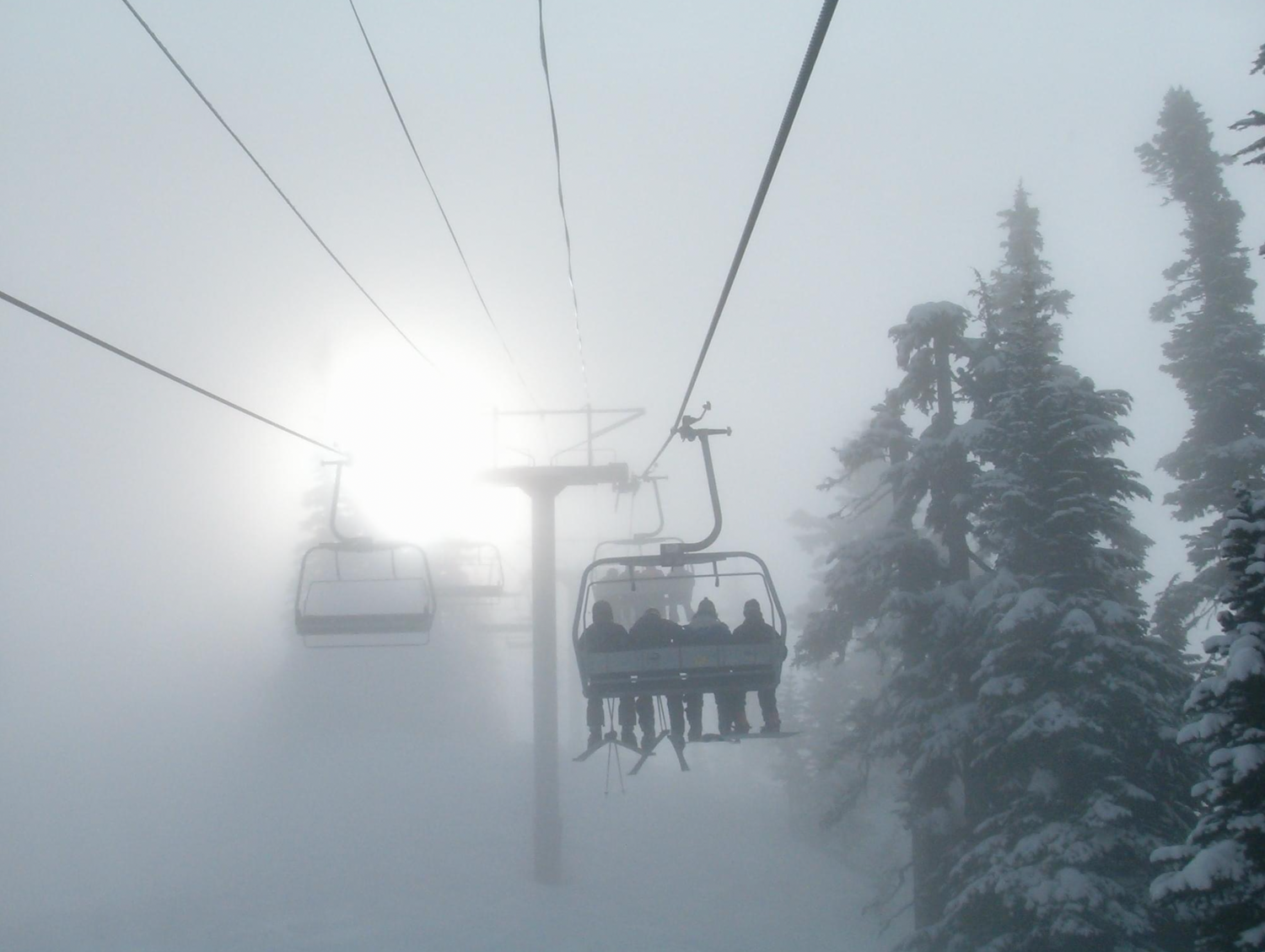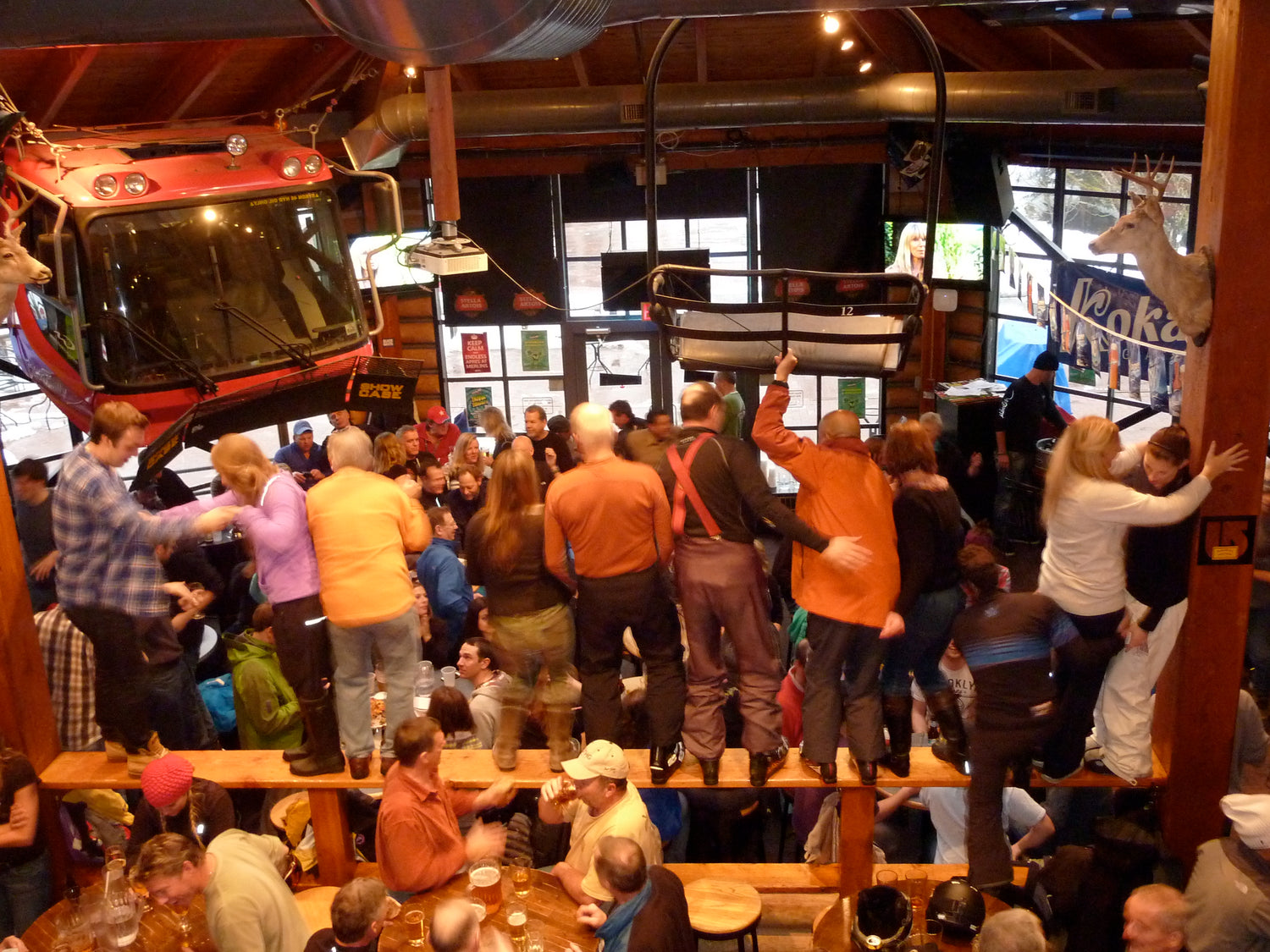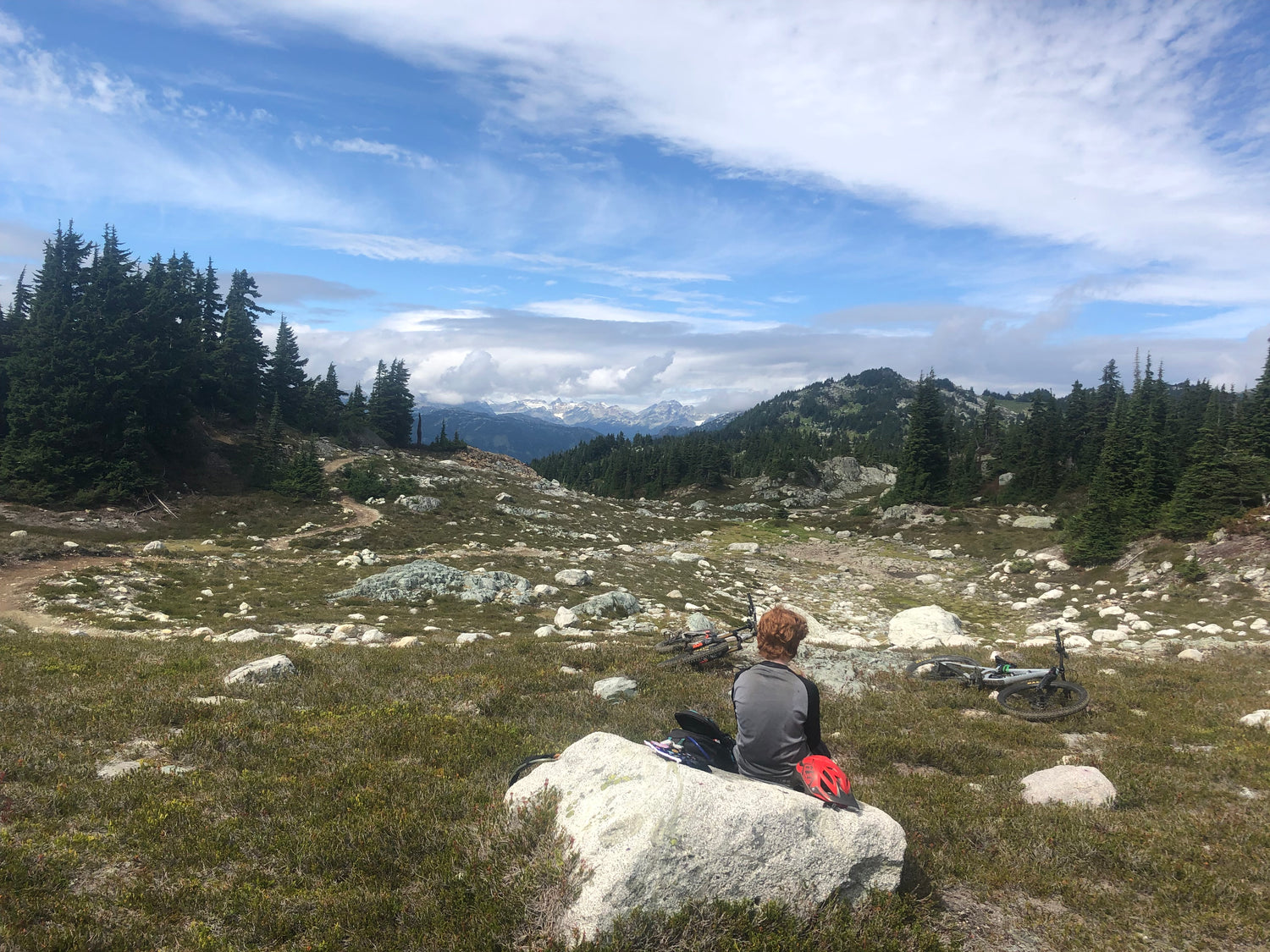Everyone is welcome!
We want to share some of Whistler's best resources. We hope there are some surprises in here, even for the locals!
Collapsible content

Indigenous Connections
Since time immemorial, the Squamish (Sk̲wx̲wú7mesh) Nation and the Lil’wat (L̓il̓wat7úl) Nation have existed on this shared this territory in and around Whistler. These Nations' histories are inextricably connected to the beautiful, nourishing mountains, rivers, forests and wildlife of the Sea to Sky corridor.
Historically, there was an Indigenous village called Spo7ez near the Cheakamus River where the Squamish Nation and Lil’wat Nation would meet to trade with one another.
As we understand it, one of the traditional stories speak of how the Squamish (Sk̲wx̲wú7mesh) Nation and the Lil’wat (L̓il̓wat7úl) Nation came into conflict (as neighbours sometimes do) and then the Thunderbird flapped his wings, causing a volcano (a mountain now known as Black Tusk) to erupt, burying the village of Spo7ez. Those who survived the disaster returned home with a message of peace, urging the two communities to get along. (https://slcc.ca/history/)
Historically, people of the Squamish (Sk̲wx̲wú7mesh) Nation and the Lil’wat (L̓il̓wat7úl) Nation hunted, maintained traplines and harvested vegetation for food and traditional medicines throughout the Whistler region. There is still evidence in the area of historic traditional uses of the landscape, such as culturally modified trees and Istken-Pithouses. While many local Indigenous folks now participate in more contemporary living, some traditional ways of life continue today, both supporting and supported by these communities. Hunting and traplines remain common and trees, plants, mushrooms and other natural resources are used for many things including shelters, canoes, food, medicine, art and spiritual ceremonies.
Today, the Whistler community is strengthening connections with the Squamish (Sk̲wx̲wú7mesh) Nation and the Lil’wat (L̓il̓wat7úl) Nation, working to deepen an understanding of Indigenous history and commitment to truth and reconciliation.
Whistler is home to the Sk̲wx̲wú7mesh Lil̓wat7úl (Squamish Lil'wat) Cultural Centre (SLCC), a unique immersive, dynamic museum showcasing the two First Nation communities that live in the Whistler area.
Check out these resources: SLCC "History" page
Love this Planet - Environmental Advocacy
As a community founded on outdoor adventure in the mountains, it makes sense that Whistler cares about the environment. Whistler has a long history of environmental advocacy - and hopefully a big influential reach, with thousands of visitors every day.
The community's OG grassroots environmental group AWARE (the Association of Whistler Residents for the Environmment) has been working hard for over 30 years to raise awareness and protect our local and global environment. With key campaigns around climate change, zero waste and community gardens, AWARE is a core collaborator and partner in the community.
The Whistler Naturalists are the species experts and work to increase local knowledge and appreciation about biodiversity, hosting two annual festivals to knock your eco-friendly socks off: BioBlitz and Fungus Among Us.
The Sea to Sky Invasive Species Council (SSISC) has its roots here in Whistler and their focus is to stop the spread of invasive species, which are one of the top threats to local and global biodiversity.
POW (Protect our Winters), part of a broader North American initiative, has been out in full force for the past few years raising awareness and advocating about climate change. Working with the outdoor sports and recreation community, POW encourages us to channel our love of adventure in nature towards the fight to protect it.
The Resort Municipality of Whistler (RMOW) is committed to climate action and recently launched the Big Moves for climate action. A public education campaign encourages all of us to take small steps for Big Moves in our everyday life to help fight climate change.
Cool Fact: AWARE started in 1989 as a small group of volunteers pushing for recycling of cans and bottles. The organization then served as a core group advocating for strong environmental outcomes at the 2010 Olympic and Paralympic Winter Games. Check out this fun poem celebrating AWARE's 30th birthday, written in the style of Dr. Suess' The Lorax!
Love Each Other - Community Services & Support
Arts Whistler
We [HEART] local art!! Arts Whistler is the lead agency for arts and culture in Whistler and strives to make creativity a part of everyone’s Whistler experience. Arts Whistler programs, promotes and advocates fro the arts and local artists, while providing residents and visitors with access to bold, inspiring and engaging experiences.
Looking for live music or comedy shows? Local film festivals? Anonymous art shows? Student art bursaries? A gallery & gift shop? Arts Whistler does it all!
Explore another side of Whistler with the Arts Whistler Culture Maps. Discover moments in history, burst open your perspectives and celebrate creativity as the Culture Maps take you on a journey deep into the heart of Whistler and the beautiful Coast Mountains. The Culture Maps series is an excellent launching point for a creative journey that takes you to cultural venues, museums, galleries and public art pieces.
For more info, to check out the latest local arts events and/or to support the local art community, please check out the Arts Whistler website: Arts Whistler
The Sk̲wx̲wú7mesh Lil̓wat7úl (Squamish Lil'wat) Cultural Centre (SLCC)
Whistler is home to the Sk̲wx̲wú7mesh Lil̓wat7úl (Squamish Lil'wat) Cultural Centre (SLCC), an immersive, dynamic museum showcasing the two First Nations communities that historically lived in the Whistler area - and still do today.
Discover the Coast Salish people through their songs, stories and traditions. Learn about the significance of the local trees, mountains and rivers to people who've called this area home since time immemorial. Take a tour of the exhibits showcasing local Indigenous history and art - make the most of the experience with a knowledgeable Cultural Ambassador, a welcome song, a film and a craft activity. Explore the gift shop and bring home a piece of Indigenous artwork. And don't forget to try the bannock at the Thunderbird Cafe - your tummy will thank you!
The SLCC hosts some awesome events throughout the year, like wellness Feasts, holistic tours and Indigenous tea offerings, and totem and canoe carvings. Be sure to attend if you are able, for an unforgettable cultural experience.
The SLCC is a vitally important cultural hub in our community for discovery, learning, sharing, experiencing and connecting. All of these things and more are needed to support reconciliation and we are privileged to have this cultural resource in Whistler.
Check out the SLCC website for more info: SLCC "History" page. Better yet, visit the SLCC in person and immerse yourself in the history and traditions of the Coast Salish people.
Olympic History
Whistler was the Host Mountain Resort for the Vancouver 2010 Olympic and Paralympic Winter Games. Hosting the alpine skiing events, the nordic skiing events and the sliding events (bobsleigh, luge and skeleton), Whistler was home to over 3,500 athletes and officials. Today, the Whistler Athletes Village is Whistler's newest neighbourhood, providing a legacy of much-needed affordable housing for local employees and families.
But Whistler's Olympic history actually goes back much farther than 2010...
In the early 1960s, a group from Vancouver formed the Garibaldi Olympic Development Association in the hopes of bringing the 1968 Olympic Winter Games to British Columbia. After exploring the Coast Mountain area north of Vancouver, they found the perfect spot for a ski hill - Whistler Mountain (which was called London Mountain at that time). Even though the bid to host the 1968 Winter Games was lost for Vancouver/Whistler, (it was hosted in Grenoble, France) the Garibaldi group decided to develop a ski hill here anyway. In 1966, the freshly re-named Whistler Mountain officially opened for skiers. It took nearly 50 years for Whistler to finally realize its Olympic origin dreams, And when it did, it was magical!
Cool Fact: Our whistlerness family lives in the Whistler Athletes Village legacy neighbourhood. During the 2010 Games, our home was occupied by the Canadian Olympic Skeleton Team, including John Montgomery who gained fame by winning a gold medal in the Skeleton event. Montgomery became even more famous for chugging a pitcher of beer during a celebratory walk through Whistler Village after his gold medal run! We suspect our house may have hosted a few memorable parties before we moved in ;)



